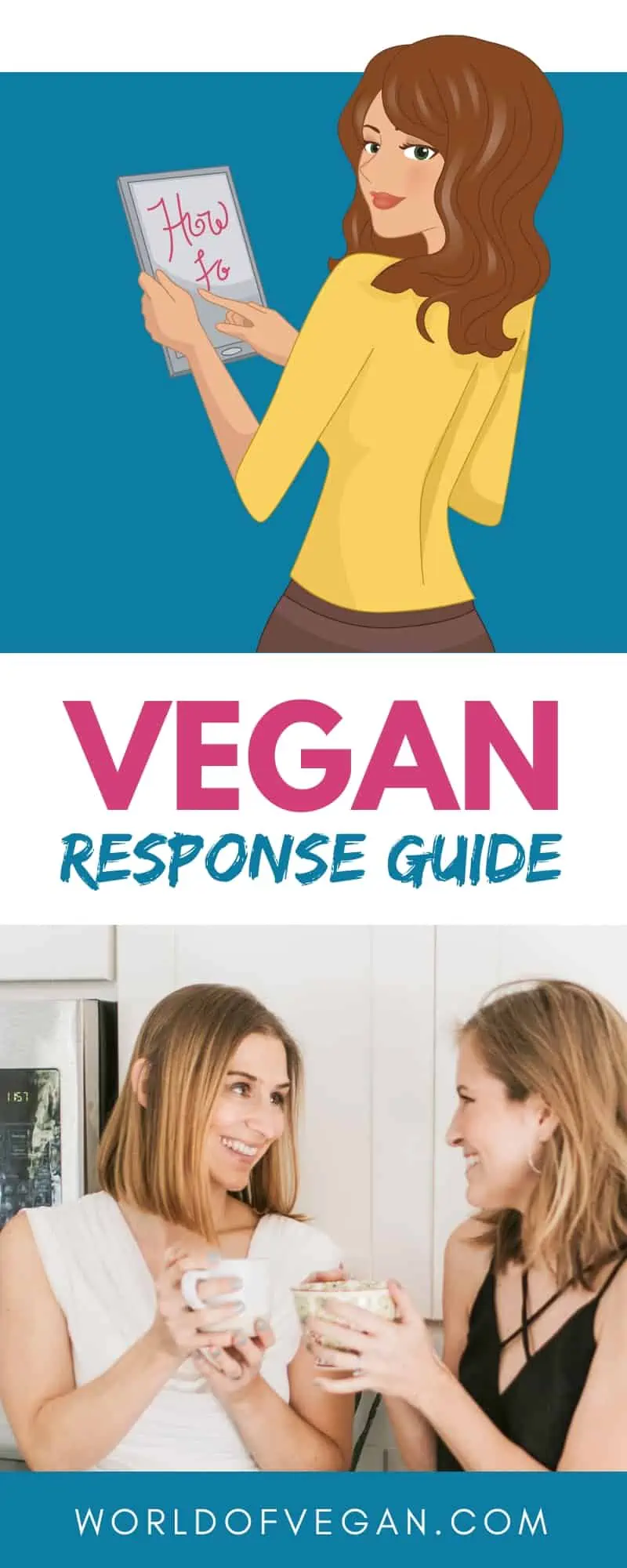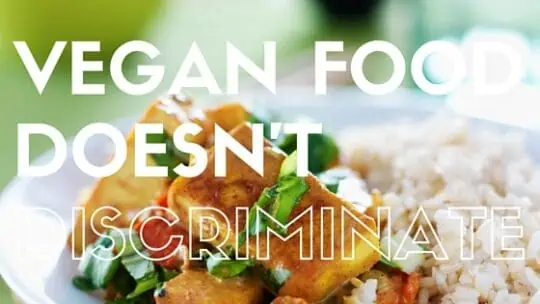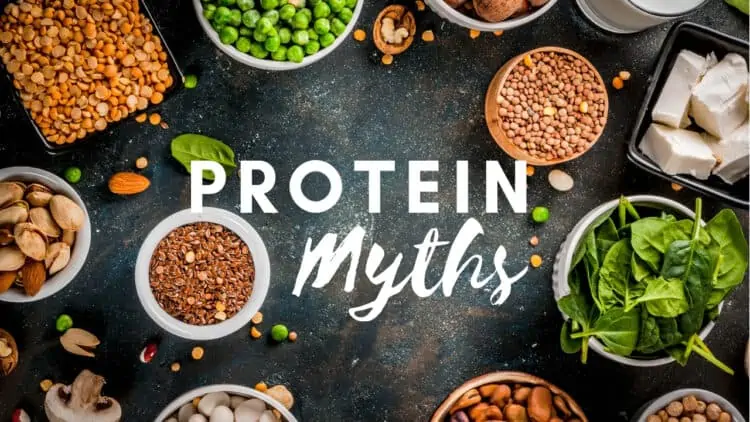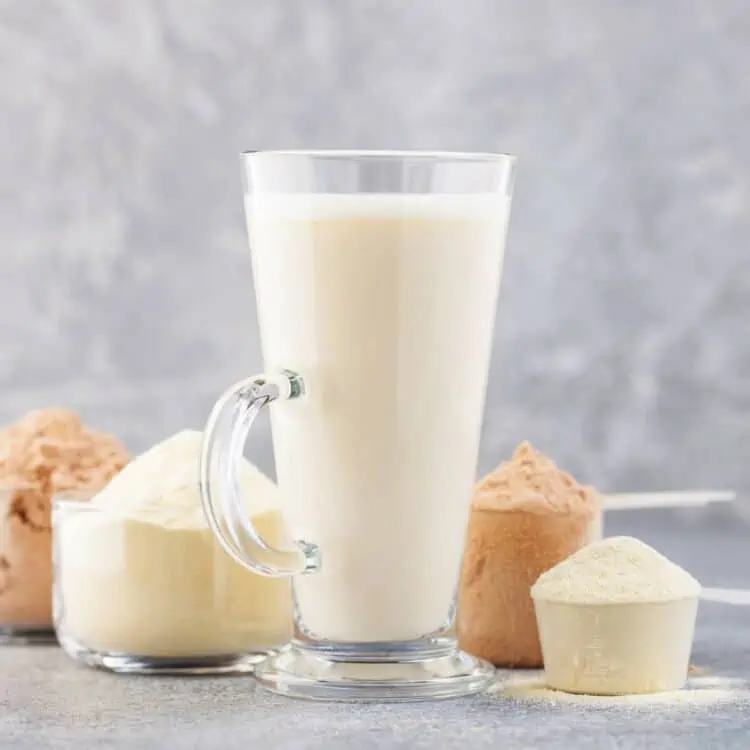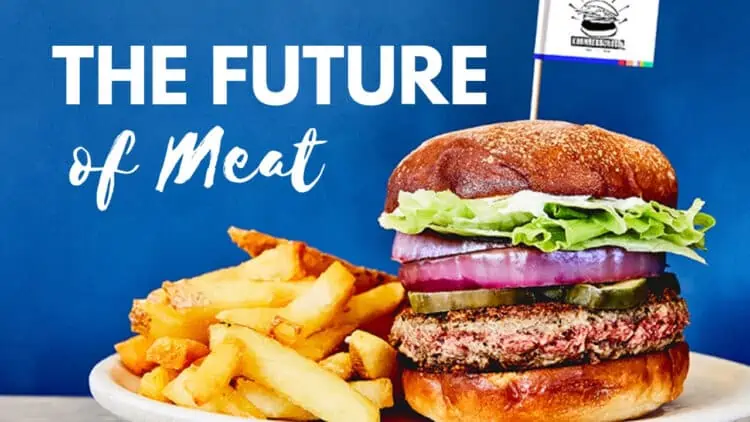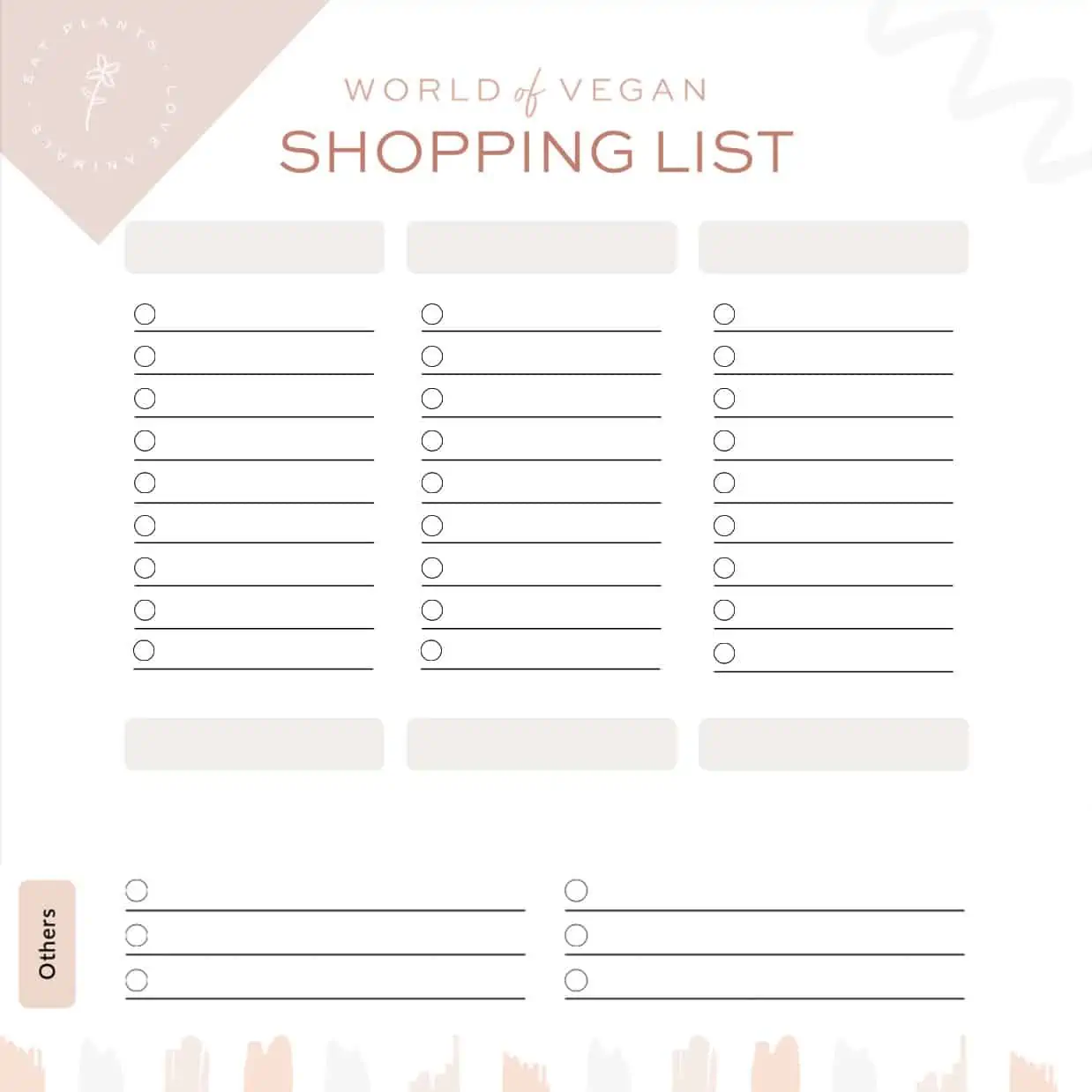14 Things Said to Vegans (And How to Respond Without Losing Your Cool)
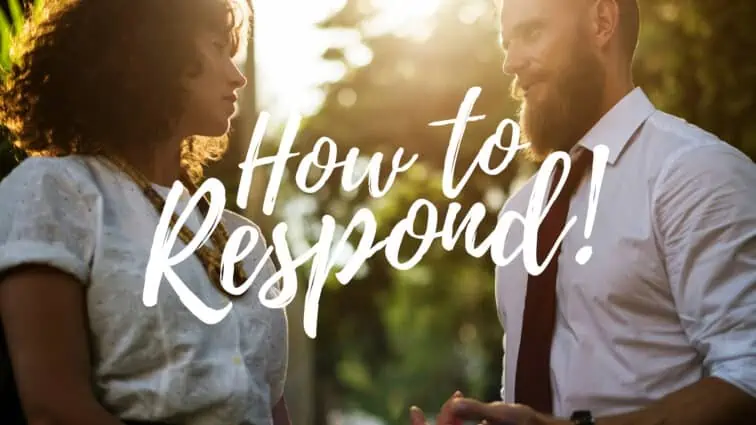
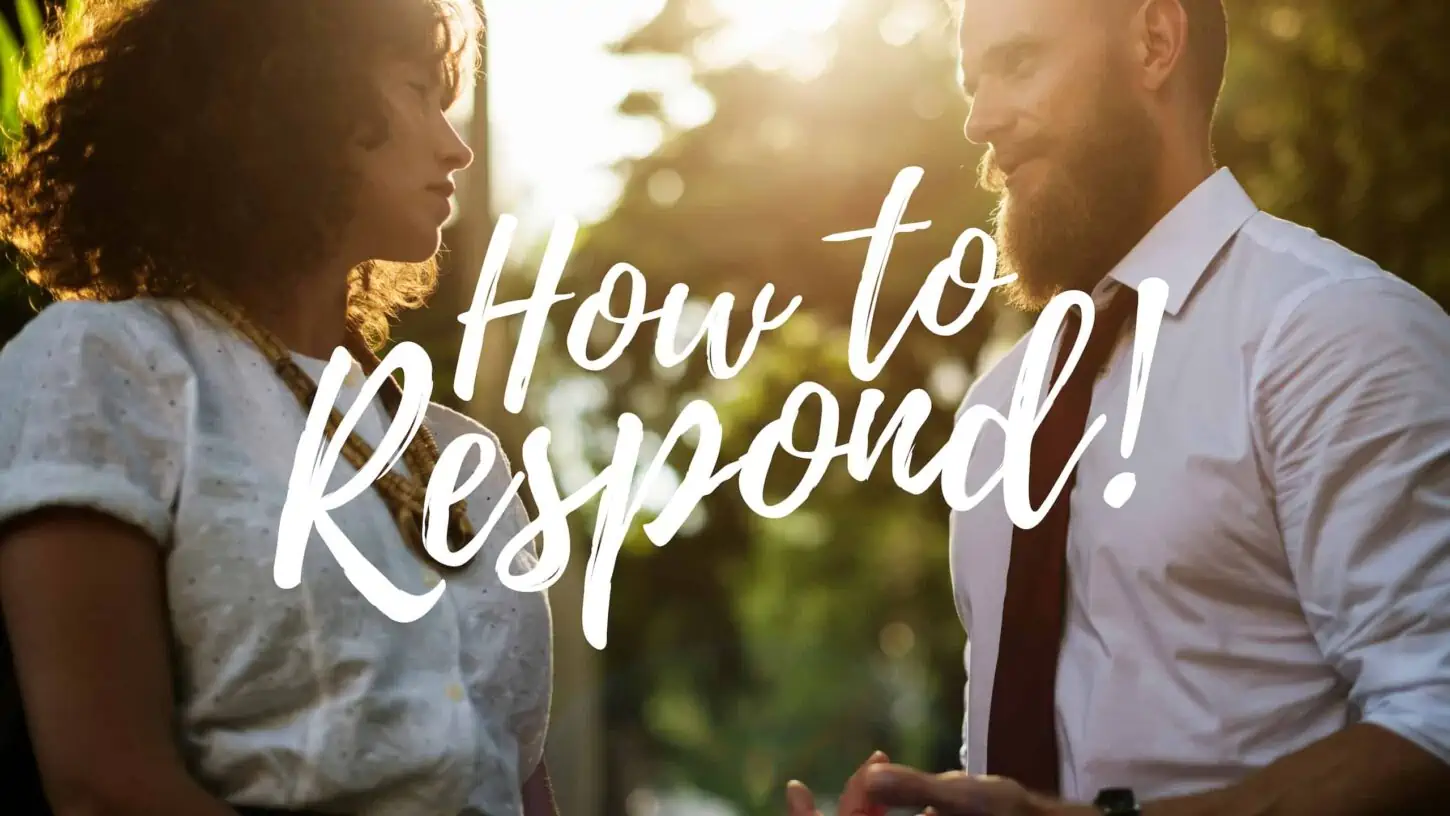
If you’re a long-time vegan, a brand-new plant-based eater, or even trying out more plant-powered meals, chances are you’ve had some “interesting” conversations with family, friends, and complete strangers. It happens to all of us.
Here are some of my favorites from over the years. Some of the responses I didn’t think of until later. Don’t you hate it when you come up with the exact right thing to say—about 45 minutes too late?
1. Where do you get your protein?
Ah, the classic protein question.
The good news is that most people don’t ask this one to be snarky or unsupportive. They ask because they genuinely want you to be healthy and they may believe that protein can only be found in animal products.
It’s a good idea to open with something other than “You’re an idiot!” which is guaranteed to turn a polite conversation into an unpleasant and defensive one. Instead, start with something that acknowledges and encourages their curiosity. Like…
“That’s a great question.”
Besides, this is actually a good question, since most of us are not trained nutritionists. OK, where was I?
“That’s a great question. When I went vegan, I wondered about that too. It turns out that plant-based foods have plenty of protein as long as you don’t just eat apples and maple syrup all day. I get protein from beans, chickpeas, lentils, tofu, pasta, quinoa, oats, nuts, seeds, soy milk, broccoli, potatoes, spinach, kale, corn, and lots of other veggies.”
If you want to go for the short and snappy response, try this one:
“I get my protein the same place that elephants and rhinos do—from plants! You know, elephants and rhinos, the undersized, protein-starved weaklings of the animal world.”
2. No, seriously. What if you’re body-building? Or running marathons? How do you get enough protein?
Inside, this person is thinking, “There is definitely not enough protein in plants to power a real he-man or she-woman like me.” It can be helpful to answer with a counter-example.
“I’m so glad you asked. It turns out that plenty of top-tier athletes have had great success with a vegan or near-vegan diet. Check out Scott Jurek, the ultra-marathoner. Or Venus Williams, the tennis player. Or Hannah Teter, Olympic snowboarding medalist. Or Tom Brady, quarterback for the New England Patriots. Or Olympic weightlifter Kendrick Ferris. Not only are these athletes able to compete at the highest level on a plant-based diet, but they find that it actually enhances their performance and gives them a competitive edge.”
I sometimes answer this one by explaining how I wanted to run a marathon my whole life but didn’t actually do it until after I went vegan. I had no problem at all doing the long training runs. I didn’t even have to adjust my diet to increase the protein content—I just ate some extra snacks. The lack of animal protein was most definitely not holding me back.
3. But…protein.
People really take a lot of convincing about protein.
“The meat, dairy, and egg lobbies in the U.S. have done an outstanding job convincing people that animal foods are the only or “best” source of dietary protein. But the Academy of Nutrition and Dietetics, the largest group of nutrition professionals in the U.S., has a different point of view.
They say: ‘Appropriately planned vegetarian diets, including total vegetarian or vegan diets, are healthful, nutritionally adequate, and may provide health benefits in the prevention and treatment of certain diseases.’”
4. Humans are meant to eat meat. Check out my awesome canine teeth!
As if they could go tooth-to-tooth in one-on-one combat with a tiger. Trying not to laugh.
“You’re right that humans are capable of eating meat, and we’ve done it for thousands of years. But humans are omnivores, which means we are capable of getting our nutritional needs met from either plant or animal foods.”
Humans have evolved to make choices beyond what we can do to what we should do, for the good of humans, animals, and the planet. Child workers used to be a popular source of cheap labor, but we now have laws to prevent this kind of exploitation. Similarly, meat-eating in the 21st century comes with enormous suffering in factory farms, transport trucks, and slaughterhouses. Given that humans can thrive on tasty plant-based foods, shouldn’t we try to reduce that suffering?
5. You’re not really a true vegan. I bet you’ve taken medications that were tested on animals. And what about all those small animals killed by the machines that harvest the plants you eat? And what about the tires on your car, they’re not vegan!
I’m never quite sure what people are trying to prove with this one. Maybe they think that if they catch me with some inconsistency, I’ll completely crumple and say, “Wow, you’re right! I must immediately start eating meat so I can be consistent!”
Here’s the approach that I’ve found works best.
“That’s a great observation. You’re right, I’m not 100% zero-impact for animals. No one is. In today’s world, perfection isn’t possible. But that won’t stop me from doing the best I can!”
People trying to pick a fight just hate it when you agree with them. Try it out!
I have to say, though, that it’s ridiculous that car tires are not vegan. Animal-derived stearic acid is used to help the tires hold their shape. Some tire manufacturers are now using a plant-based substitute, so it doesn’t hurt to ask!
The point is to not let a perfection mentality get in the way of making a difference. It’s virtually impossible to live on this planet without having some impact on animals, no matter how careful you are. Animal by-products are cheap and widely used, so they show up in all kinds of unlikely places. And sometimes you don’t have a choice. If the medication that keeps you alive is made using animal products or was tested on animals, for goodness sake, take it. You can make a far greater impact on our world when you’re alive and healthy than by passing up your meds.
Focus on the choices that you can make, and don’t lose sight of the big picture.
6. It’s just impossible to be vegan all the time. What about eating out? What about traveling in foreign countries or in rural areas where there isn’t a selection of restaurants?
“You’re right, it can be a little tricky at first, but it gets easier as you learn how to do it. Most restaurants are happy to customize a vegan dish for you.”
- At my local pizzeria, I just ask them to leave off the cheese and pile on the veggies.
- At fancy restaurants with no vegan options on the menu, I ask them to leave the meat and dairy out of one of the entrees. If I see an ingredient I like elsewhere on the menu, I’ll ask, “Can you throw in some of those chanterelle mushrooms?”
- On road trips, I look for Taco Bell, where I can order a vegetarian bean burrito “fresco style” without the dairy.
- In meat-centric foreign countries, I often pick up a picnic meal from the produce section at the local grocery store. And I always have a vegan snack handy, just in case (traveling with energy bars is never a bad idea).
Traveling in countries that don’t speak your language is a particular challenge. I like to memorize the local language equivalent of “I don’t eat meat, poultry, fish, shellfish, dairy, or eggs” before I get on the plane (or turn to my trusty Vegan Passport app), but sometimes language is an insurmountable barrier. In those cases, I order the most veg-looking dish I can (sometimes by pointing at another diner’s plate), and then I don’t worry about it. Again, it’s not about perfection—I decided years ago not to beat myself up for one accidental mouthful of cheese or chicken.
7. Why are you vegan?
This question almost always gets asked at the dinner table, right as everyone’s about to dig into their non-vegan food. I’ve learned that it’s most effective to keep the answer short and friendly.
“Thanks for asking! I eat vegan out of concern for animal suffering, and I also appreciate the environmental and health benefits. If you’d like to know more, I’d love to talk to you some other time—I want everyone to enjoy their meals.”
Keep in mind that everyone at the table may be listening to your answer. Even if the person who asked the question seems hostile to veganism, other people at the table may not be, so it’s helpful to answer in a way that invites further conversation rather than raising peoples’ defenses. Someone who’s about to tuck into a juicy steak is not in a good position to listen to a report on conditions in slaughterhouses. Most people are at least somewhat aware of the disconnect between what they believe (that animal cruelty is wrong) and what they eat (the products of animal cruelty). But if you call out this discrepancy at the dinner table, human psychology works against you, and everyone digs their heels in deeper.
8. Vegans are so judgmental and holier-than-thou. What gives you the right to tell me what to eat?
People say this even when you haven’t told them what to eat. Maybe all you did was explain why you are vegan. This person is angry and defensive, so you’ll need to account for that when you answer them.
Consider two scenarios. In the first, you’re alone with the questioner. You’re unlikely to convince them with further argument, so all you can do is avoid escalating the exchange.
“Of course, only you get to decide what you eat. And I’m really sorry if you’ve encountered vegans who made you feel judged.
But I think that’s a little unfair to say that of all vegans. I’m just trying to do what I can to reduce animal suffering with my food choices.”
In the second scenario, other people are present to hear your reply. Try to make a good impression on them, and give them something to think about. It’s a win if they end up feeling like the questioner was the judgmental one in this conversation (wink-wink).
“Of course, only you get to decide what you eat. And I’m really sorry if you’ve encountered vegans who made you feel judged. Consider this…
If we were talking about potato chips vs. carrots, you can choose whichever snack makes you more happy without impacting someone else. But in the case of meat, there’s someone else to consider—the animal on the plate. When we choose to eat animal products, someone else is paying the price of that decision, making it not such a ‘personal’ decision at all.
It’s a little bit analogous to the power that parents have over their children—parents have the right to raise their children as they see fit, but not the right to physically abuse them, because you have to consider the child’s interests also.”
9. You’re vegan? I’m going to order an extra burger to make up for that.
This comment is just plain mean. The speaker is either really hostile to vegans, or is going for a cheap laugh. Just like in #8 above, your answer is really directed at everyone else within earshot.
“You seem like a basically kind person, someone who would be opposed to needless animal cruelty. I’m not sure why you’d choose to order an extra burger that you don’t need, but I hope you make sure it doesn’t go to waste.”
10. What about people who live north of the Arctic circle and hunt for their food? Do you expect them to grow carrots in the snow?
In other words, Those people have to eat meat, so everyone else should too.
“That’s an interesting corner case. But the vast majority of people live in places close to a grocery store, where they can buy a variety of plant-based foods. Just because a few people have limited food choices doesn’t mean that the rest of us have to live with those limitations.”
11. What if you were stranded with no food on a desert island? Would you eat meat then?
I don’t know why this question is so popular, but I’ve heard it quite a few times.
“It’s an interesting thought question. But it doesn’t have much relevance for our daily lives, where it’s easy to choose plant-based alternatives to animal foods. But since you asked, if I were faced with a true survival situation, I would consider eating an animal if that’s what it took to stay alive. Come to think of it, if a human corpse were available, I’d think about snacking on that too. Either way, it’s disgustingly gross but it’s better than dying. I’m grateful that I’m not likely to ever face that kind of a tradeoff.”
12. Don’t you miss [cheese / bacon / ice cream]? I could never give up [cheese / bacon / ice cream].
This question gets asked by people who are looking for an excuse not to try a vegan diet. They’re thinking it has to be all or nothing.
“Mostly, I don’t miss eating the animal foods I used to enjoy. I’ve found tons of awesome plant-based versions, like Miyoko’s cheese and butter and So Delicious ice cream.
But whenever I do remember the delicious taste of some meat or dairy food item, I remind myself how good it feels at every meal to know that no one had to suffer for my food.
And you know what? If you think you could never give up bacon, then don’t think about giving up bacon. You can still help animals, the planet, and your body by dropping the other animal foods.
Don’t let the perfect be the enemy of the good—you help animals every single time you choose the veggie option. It’s all about doing what you can. Maybe you could do Meatless Monday? Or could you give up your least favorite cut of meat?”
13. What about my grandma’s special home-made cookies? I can’t hurt her feelings by refusing them.
I hear a lot of variations of this question. When friends or family put a lot of work into making food for you that isn’t vegan, what do you do?
“It doesn’t have to be about vegan perfection. If Grandma’s cookies are a deal-breaker for your vegan diet, then go ahead and eat the cookies. If you’re choosing plant-based foods most of the time, you are making a big difference for animals.”
Better yet, see if Grandma is open to a joint baking session where you bake a vegan version of her cookies together! What a sweet bonding activity. Or, ask her for the recipe so you can veganize them yourself, like Greg and Michelle did! You can bring them to Nana to taste-test and I guarantee she’ll be touched by your effort.
I know some vegans who have declared that “all birthday cake is vegan.” That allows them to participate in celebrations with friends and families while eating a vegan diet the rest of the time.
Or, if you’re watching your weight like I am, you might appreciate that a vegan diet gives you the perfect excuse to politely decline the extra calories. Whatever works for you.
14. What CAN you eat as a vegan?
People who ask this question are mentally picturing their dinner from last night with all the animal-based foods removed. All that’s left is a spring of parsley. No wonder they’re asking.
“That’s a great question.
When I first went vegan, I wasn’t sure what my meals were going to look like without any meat on the plate.
At first, I replaced the meat with plant-based meat alternatives, so I could enjoy all the same meals and recipes that I was used to. Beef stir fry, chicken soup, spaghetti with meatballs, hamburgers, and beyond.
Over time, I learned to make amazing veggie dishes like stuffed acorn squash that can serve as the centerpiece of any meal. With dozens of different vegetables, fruits, grains (like pasta, bread, rice, and quinoa), legumes (like beans, lentils, and peas), nuts, and seeds available at my local store, I actually eat a bigger variety now than I did in my meat-eating days. And the best news is that most dark chocolate is vegan, so I could keep eating one of my favorite foods!
Hope you found this guide helpful and that it helps you respond to all those vegan comments and questions without losing your cool. You’ve got this!
Article written by Lisa Towell.
